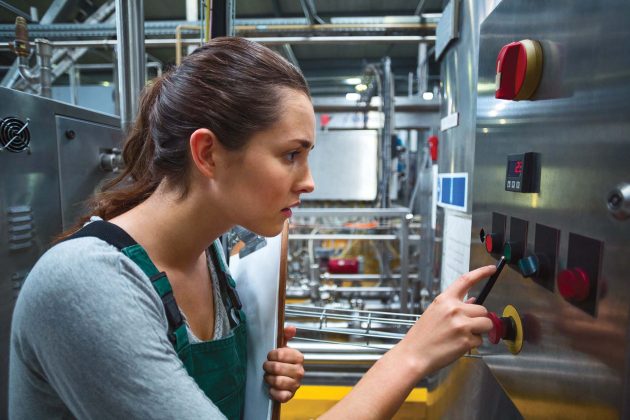
Writing a quality resume for a manufacturing job application: 4 key guidelines
by Emily Henry, Writer
Following these 4 guidelines may help you achieve a well written manufacturing-related resume.

Hiring more women will help close the skills gap in manufacturing. PHOTO: Fotolia
Most of us despite writing resumes. This common association regarding resumes leads to an abundance of people procrastinating when it comes to applying for jobs. Your resume should relate to whatever field of work you are going into. The manufacturing field is an industry that requires relevant factory and facility experience on your resume. Here are 4 guidelines you should follow when writing a resume for manufacturing job applications.
Relevant Experience
The first thing employers are going to look for on your resume is experience relevant to the position you are applying for. If you lack necessary experience, or fail to mention anything related to manufacturing, employers won’t waste anymore time viewing your application. For example, let’s say you worked at a coffee shop. You make the mistake of adding that experience as opposed to your volunteer work at a technician shop, or educational background in a bodyshop. It’s great to add multiple other forms of experiences as well, but avoid mentioning prior jobs that add nothing of value to your resume. Add experiences such as past leadership or management positions, any jobs that required you to have knowledge of manufacturing, or jobs that prove you are qualified for the job position. “There is a misconception about the need for an endless list of prior jobs to land more advanced positions. As long as you have proper experience from a few past positions, applying to new jobs shouldn’t be impossible,” concludes Beck Green, career blogger at Paperfellows and Academized.
Ambitions & Future Career
Manufacturing is not one of the most popular work industries in 2022. If you share why you want to work in manufacturing, employers will appreciate these goals and ambitions being listed. At the top of your resume, add a cover letter containing your reasons for choosing this career path. Having a plan and aspirations for where you want to end up is a desirable quality. You can briefly mention that you were inspired to work in manufacturing because your grandpa showed you how to weld when you are little (share your own story/inspiration). When people apply for jobs, they often forget about cover letters and a summary as to why they are applying to certain positions. Your resume doesn’t need to be fancy, but by mentioning your ambitions, you can impress employers.
Resources
Worrying about writing a quality resume is a normal occurrence. Even those who have written incredible resumes in the past struggle to write new ones. Fortunately, you can access online resources if you feel stuck. Writing a manufacturing resume also isn’t the easiest because of how specific the career field is. You may have trouble with formatting, wording, and showcasing yourself. Resume experts trust reputable tools like Resumention, State Of Writing, Oxessays, Lia Help, Top Writing Services, Simplegrad. Accessing help will give you more insight on how you can improve your future resumes.
Skills & Education
Just like experience, you’ll want to include relevant skills and education on your manufacturing resume. Talents such as coding, programming, teamwork, critical thinking, creativity, and welding technologies are types of skills perfect for your manufacturing resume. The main goal is to show how you are capable of being a manufacturer whether that’s as a baker, technician, or engineer. After you add your skills to your resume, next comes your education. Most often, you are required to have a degree or masters in engineering. There are exceptions to education required for jobs in the manufacturing industry. You can still get a manufacturing job by taking courses through tradesmanship programs or other means of education. If you have enough education to apply for the job, then you should be set! “The skills and education section of your resume is one of the most important parts. Having the proper education and desired skills that compliment your knowledge prove that you’re a qualified candidate,” explains Hayley Forman, writer at Boomessays and Ukwritings.